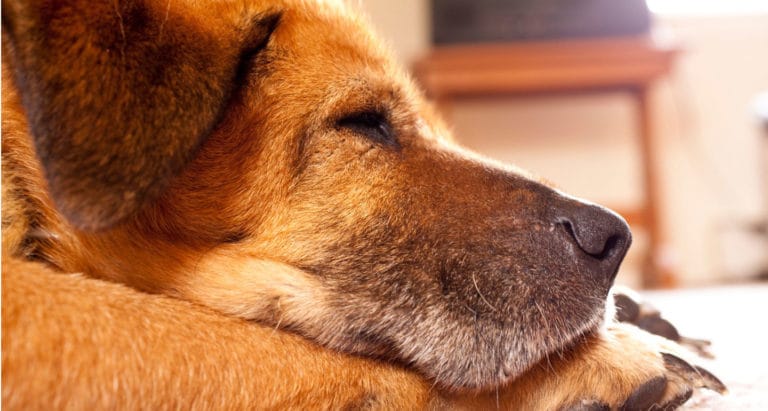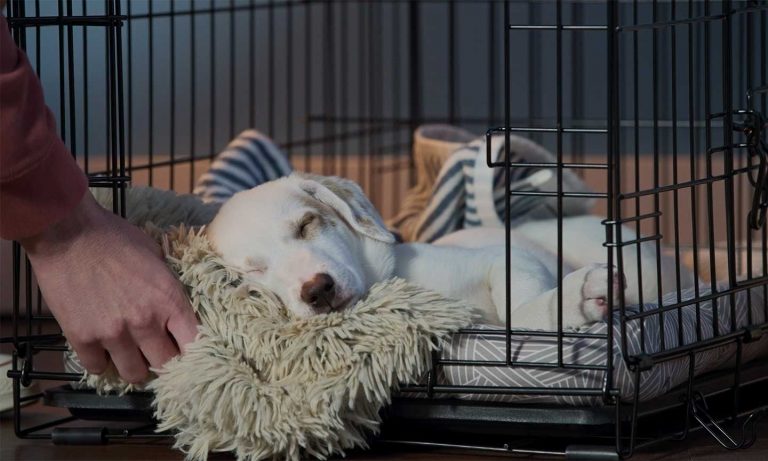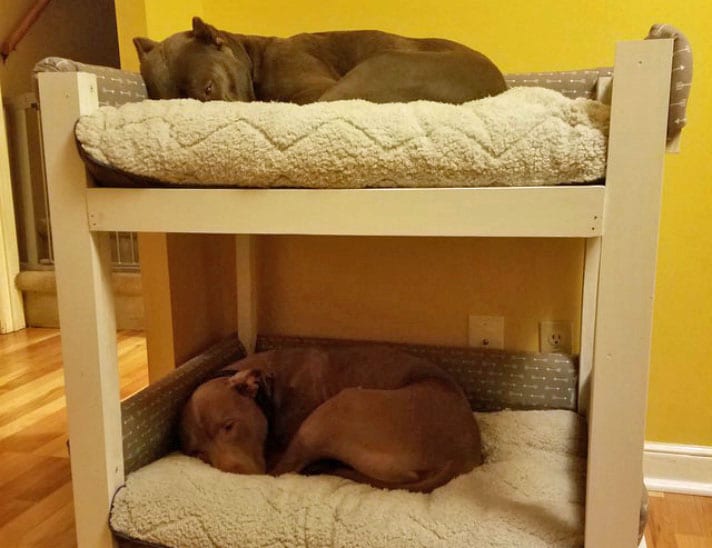If your dog typically wakes you up in the middle of the night, whimpering for you to get out of bed and let him out to go to bathroom or perhaps bark at a raccoon, you have probably wondered a few times: Doesn’t my dog realize it’s 3 a.m.?
Unfortunately, he doesn’t. But it doesn’t have to be this way. Your dog can be taught to sleep through the night.
If your dream dog has made sleeping something of a nightmare, consider these six tips to help him sleep more soundly:
Let Your Dog Out Right Before Bedtime

It’s easy to get caught up in a routine where you think you’re letting your dog out right before you hit the pillow, but after letting him out you’re showering, brushing your teeth and maybe watching some late-night TV, making his last potty break a more “mid-evening” potty break than a “bedtime” potty break.
Make sure you let your dog out right before bed and make sure it’s the last thing he does, says Ilana Krieger of PhD Pups Dog Training.
Be Consistent
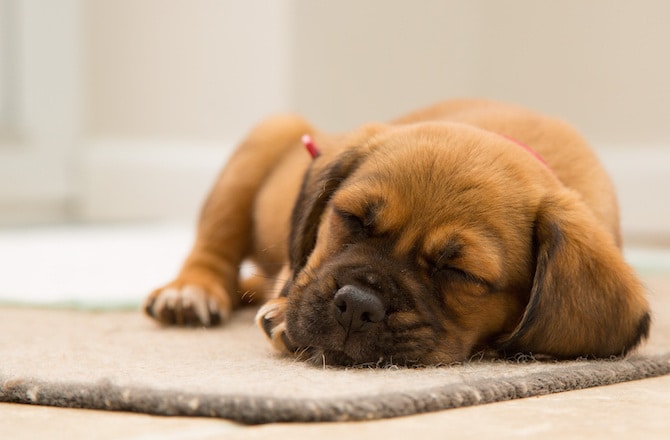
Consistency is the most important thing to help any animal learn a behavior, says Dr. Sunshine Riehl, co-owner of Advanced Veterinary Care of San Elijo in San Marcos, California.
“If you allow them to wake up in the middle of the night, then this becomes a pattern. To them, it is quite acceptable to go out in the middle of the night if you have allowed it time and again,” Riehl says. “They do not have the same reasoning capacity as we do. If they have been allowed to go out at 2:00 a.m. three nights in a row, then they think the fourth and fifth nights are just as acceptable.”
Try to make your dog’s final potty break of the night his very last break, and don’t go out again until you both wake up in the morning.
Limit Water Before Bed
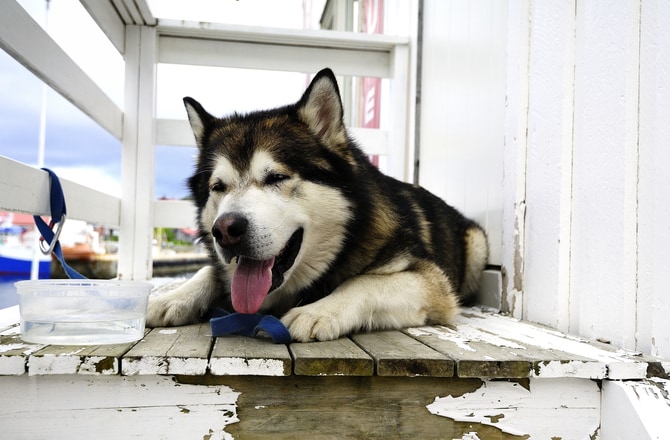
Your dog should stop drinking water about two hours before bedtime, Krieger suggests. “People are reluctant to do this, but ask any vet and they will tell you that [your dog] will be just fine.”
Judy Morgan, a holistic veterinarian at Clayton Veterinary Associates in Pilesgrove, New Jersey, agrees.
“If the pet has no health issues, water can be picked up at 8 p.m. to limit drinking right before bed,” she says.
However, dogs that have an underlying medical condition, such as heart disease or diabetes mellitus, should never have their water restricted, Riehl says. Additionally, if your dog is drinking water excessively, they should be evaluated by a veterinarian. “It is possible they should have blood work done to screen for diseases that may be causing increased water intake,” Riehl adds.
Avoid Too Much Activity Before Bed

It sounds like a good idea on the surface: tire out your dog, so he sleeps all night. But it’s better to get your dog exercise earlier in the day. If you go overboard right before bedtime, Riehl says that your panting dog will want water then you’re setting him up for wanting a middle of the night bathroom break.
Try Melatonin
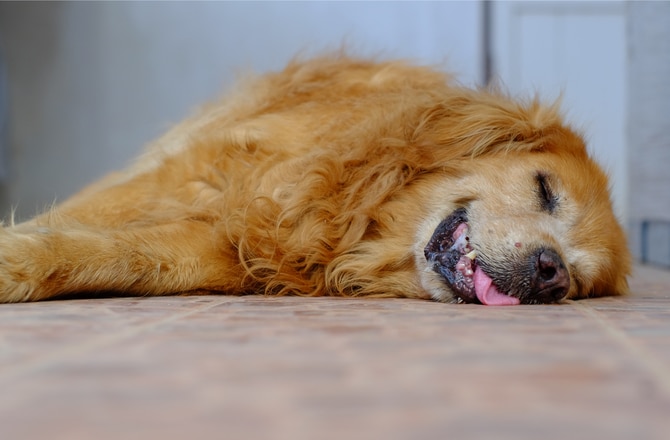
Just as humans can buy melatonin for themselves, pet manufacturers sell melatonin for dogs.
“Melatonin is a natural sleep aid that most dogs tolerate very well. Anywhere from three to six milligrams, depending on the size of the dog,” Morgan says, adding: “Check with your veterinarian to be sure your pet is not on any medication or have any health issues that might conflict with this.”
Consider Your Own Sleep Habits

Are you a bad sleeper? Do you snap out of your sleep at the slightest noise, such as your dog moving about? Maybe you end up waking up in the middle of the night and end up taking your dog out because you have poor sleep habits yourself.
Riehl says that consistency with your own sleep schedule will help your dog with his. If you go to bed at midnight every night, for instance, that’s a lot less confusing for a dog than if you go to bed at 10 p.m. one night and 2 a.m. another.
Consider speaking with your own doctor if your own sleep schedule is a concern and becomes a reason for your dog to wake up each night.

Geoff Williams is a freelance journalist in Loveland, Ohio. He and his two daughters live with one dog, three cats, two guinea pigs, one rat and a lot of fish.
Share:


